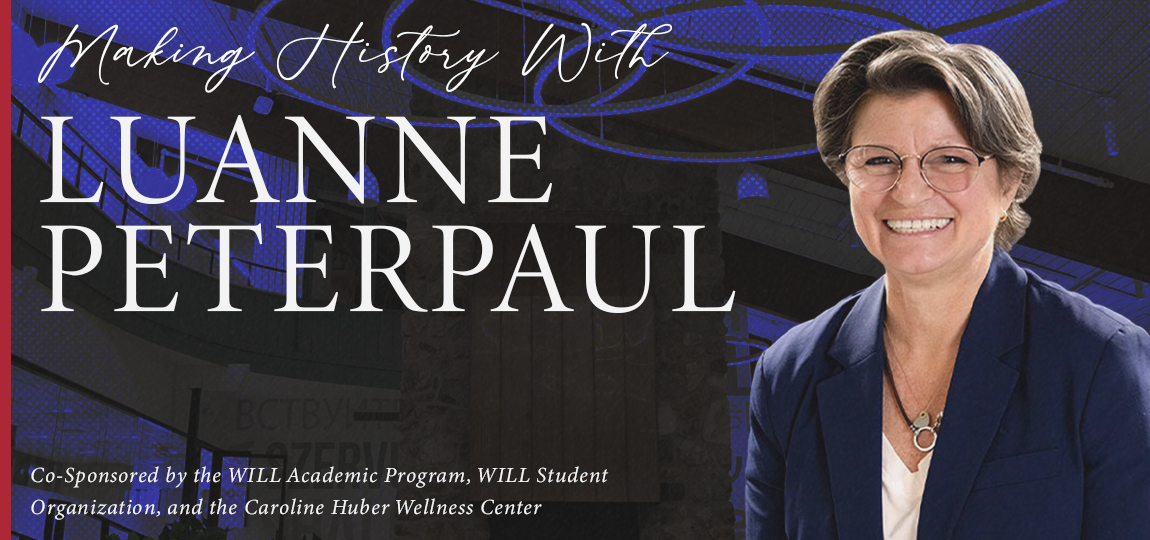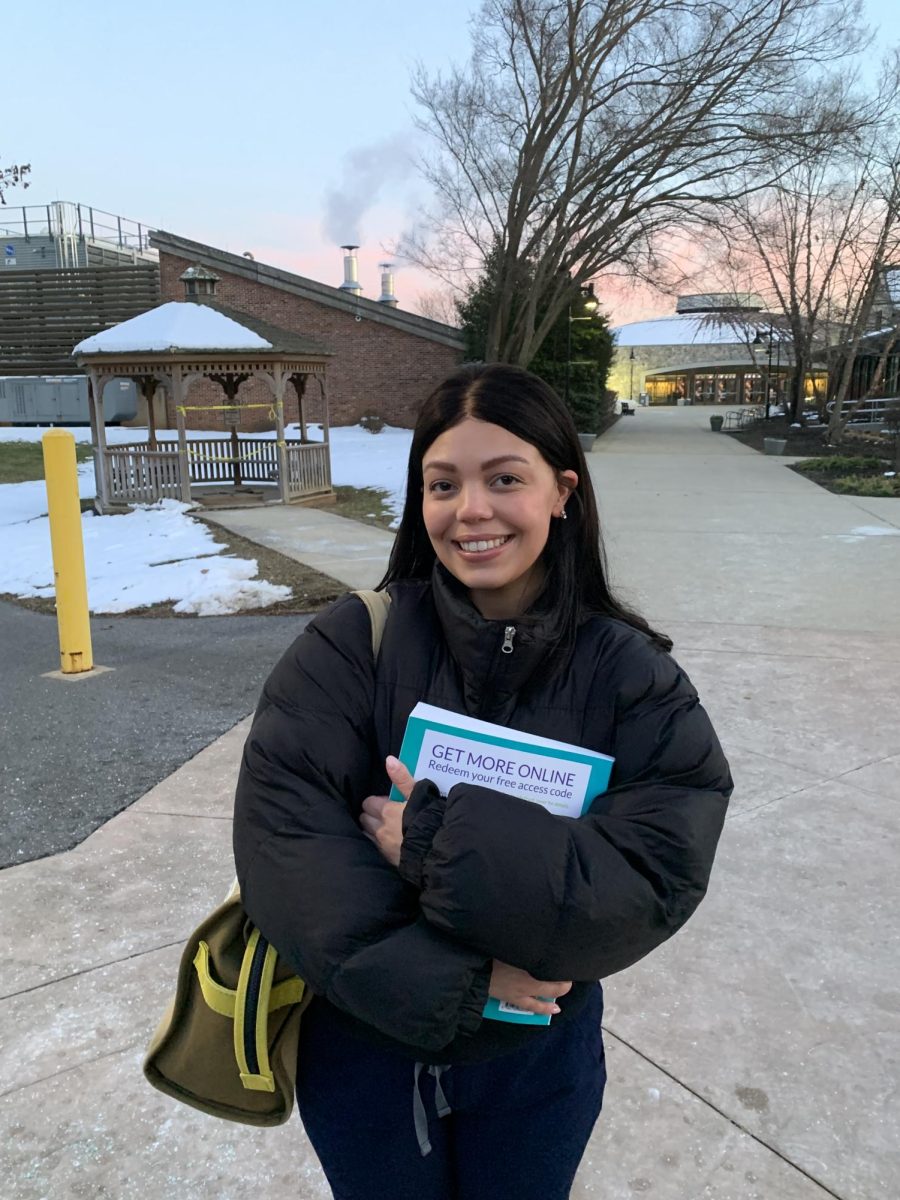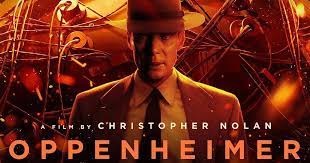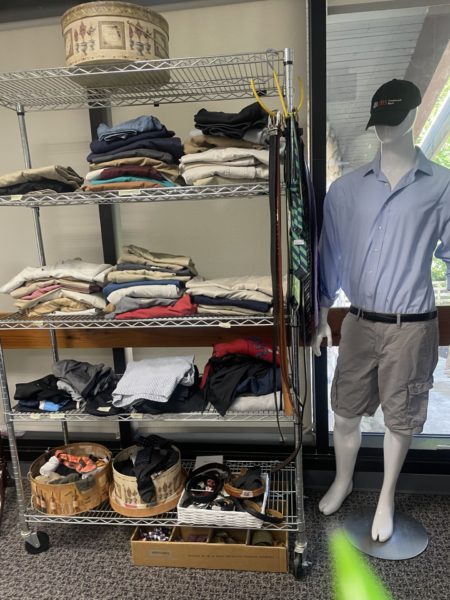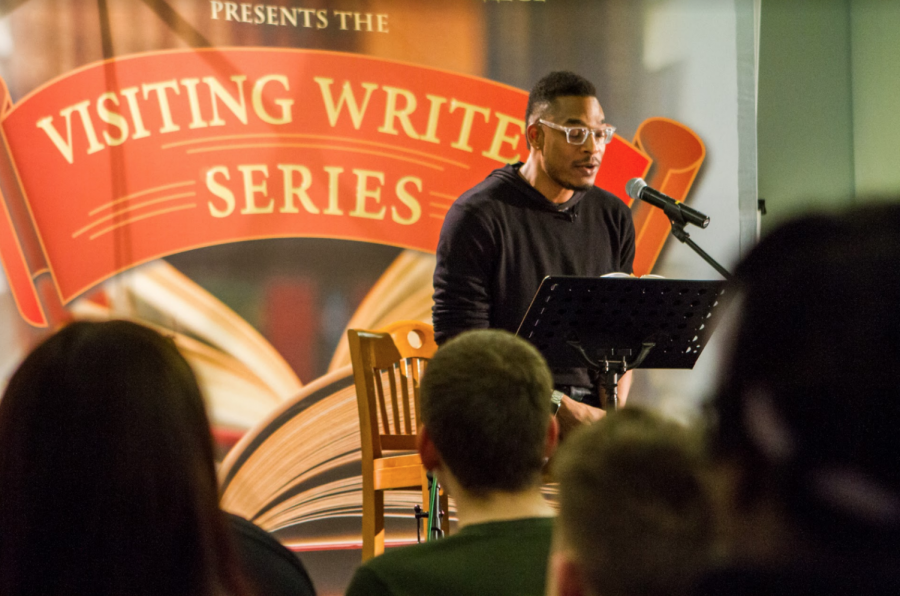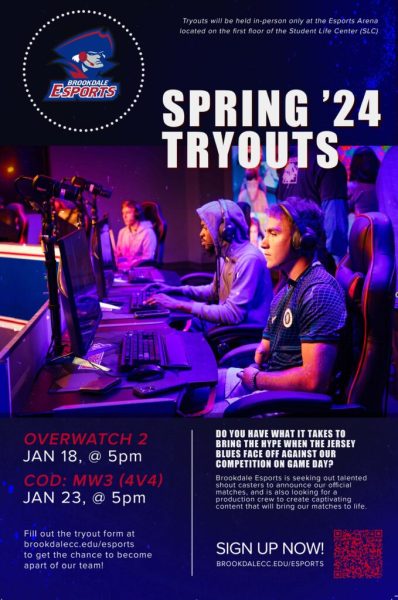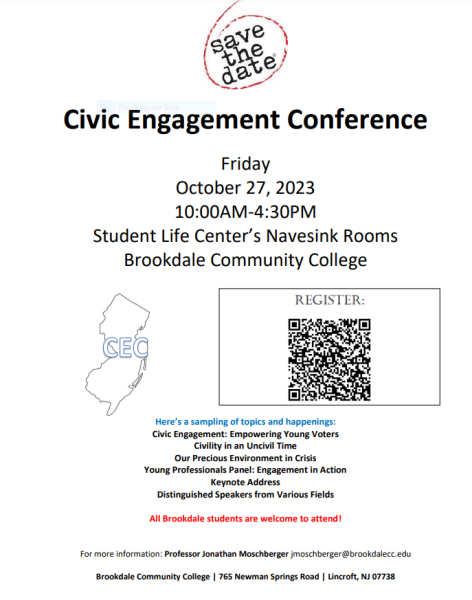Award-Winning Poet Shares His Thoughts on Inspiration
Terrance Hayes reads sonnets from his yet-to-be-released poetry book, “American Sonnets For My Past and Future Assassin.” to dozens of listeners during the the first Visiting Writers’ Series event of the semester on Feb. 7.
Acclaimed poet and educator Terrance Hayes opened the spring semester’s Visiting Writers Series Feb. 7 drawing dozens of students and other guests to the Navesink rooms at 7 p.m. to listen to him read from his upcoming poetry book, “American Sonnets from My Past and Future Assassins.”
Set to be released this summer, Hayes’ collection revolves around topics such as race, the political climate, poverty, vanity, personal experience, pop culture, technology and many other subjects. Hayes uses narrative for some, lyrical flow for others and complexed observation for the rest. Each sonnet begins and ends with the title of the book, “American Sonnets from My Past and Future Assassins.”
Hayes and his works have received numerous awards such as the National Book Award for Poetry for “Lighthead,” 2001 National Poetry Series for his second poetry book, “Hip Logic,” and the Kate Tufts Discovery Award for his debut publication, “Muscular Music.” He has also received fellowships from several institutions, including the MacArthur Foundation, National Endowments for the Arts and John Simon Guggenheim Memorial Foundation.
In one sonnet, Hayes vehemently addresses a stink bug, which he said symbolizes President Trump.
Another sonnet tells of the death of a caucasian man who bullied African-Americans. Yet another poem foretells the expansion of technology.
“Any day now you will have the ability to feed the name
Of anyone into an engine & your long lost half brother
As well as whoever else possesses a version of his name
Will appear before your face in bits of pixels & data
Displaying his monikers (like Gitmo for trapping, Bang
Bang for banging, Dopamine for dope or brains),
The country he would most like to visit (Heaven) …”
After about half an hour of reading his new poetry and sharing some works in progress, Hayes reluctantly opened a Q&A discussion. However, in doing so, he said, “If you have any questions, I have failed.”
But questions diverted less toward his specific poetry and more toward Hayes as a poet, such as his experience with writer’s block, persons of influence and his choice of being a poet rather than an author or essayist. Others were interested in the title of the book.
A 23-year-old creative writing major, Antoinette Galassa of Hazlet was not familiar of Haye’s work prior to the Visiting Writers Series event.
“I think he’s very intelligent, and it shows in his poetry,” said Galassa, who is also a poet. “I also like his use of language, so I’ll definitely look more into his work.”
One student asked about what his inspirations for poetry.
“Waking up, man. I don’t believe in inspiration. I’ve been inspired three or four times in my life where the poem was right there for me. Otherwise, you’ve got to go looking for it; it is work. Inspiration suggests there’s no work involved, so I can’t just wait for it,” Hayes responded.
The Visiting Writers Series is made possible by Student Life and Activities and the Creative Writing Club. The series continues 7 p.m. March 5 when author David Burr Gerrard will read from his work in Navesink III.
Gerrard is the author of “The Epiphany Machine” and “Short Century.” He teaches creative writing at the 92nd Street Y, The New School, and the Sackett Street Writers‘ Workshop, and the Washington Post has called “The Epiphany Machine” one “of the five best science fiction and fantasy novels of 2017.”


